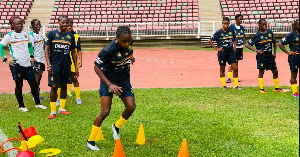The World Federation of Science Journalists, WFSJ, in the wake of the outbreak of the Ebola Virus in some West African countries, has underscored the urgent need for science journalists.
WFSJ has said the professional science journalist combines the research skills, understanding of a scientific method, and history of science with a nose for the truth.
The federation states that it is to the benefit of society as a whole to have a strong science journalism community, which is able to appraise and interpret information so that it can be of use in policy making and daily life.
In this light, WFSJ, as leaders of associations representing science journalists across the continent, urges governments and organisations, both local and international, to recognise the value of science journalists and their critical role in public health.
“We ask that you actively support the mentorship and development of a robust, informed and trained group of science journalists throughout Africa, so that when issues like Ebola arise, there are skilled communicators able to interpret the related information for the public and policy makers alike”. The need for science journalists is more urgent in the wake of the killings of health workers in Guinea, mistaken for Ebola virus carriers.
Against this backdrop, WFSJ says; “The outbreak of Ebola Virus Disease (EVD) in Western Africa highlights the urgent need to close the gap in communication between scientists, journalists and communities”.
Poor communication to WFSJ has clearly heightened apprehension among the public, while potentially seeding confusion among scientists and journalists who report the outbreak.
WFSJ maintains that in most West African countries, authorities are ramping up epidemiological surveillance systems accompanied by mass media campaigns to inform and raise awareness among the population.
But, for this to be effective, these campaigns must also counteract misinformation in communities increasing the risk of propagating the disease throughout West Africa.
WFSJ argues that in a world where online resources and social media are often used as proxies for immediate reporting, the need for science journalists is ever more critical.
“We have the depth of knowledge and range of tools required to cut through the flood of rumor and scare-mongering to provide information that is truthful, trustworthy and effective,” the WFSJ statement read.
“We understand the science that underlies stories like Ebola; years of experience have trained us to contextualise, question and link information coming from healthcare practitioners and eyewitnesses, from laboratory scientists and politicians, and use it to craft a coherent, understandable story in language that is engaging and useful for the public at large,” it continued.
Several Science journalists associations across Africa like the Cameroon Association of Science Journalists, SciLife, are signatories to the WFSJ advocacy.
Actualités of Monday, 29 September 2014
Source: The Post Newspaper













